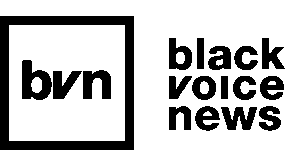 Always on our minds as we work to bring new items into the library is that every individual is entitled to see themselves reflected in a book, a magazine, a newspaper, and in everything we offer.
Always on our minds as we work to bring new items into the library is that every individual is entitled to see themselves reflected in a book, a magazine, a newspaper, and in everything we offer.
That is why Smiley Library is happy to report the recent addition of the print version of Black Voice News” to our collection of newspapers. Its arrival is timely as we enter our annual celebration of Black History Month in February. This year marks the centennial anniversary with the theme, “A Century of Black History Commemorations.”
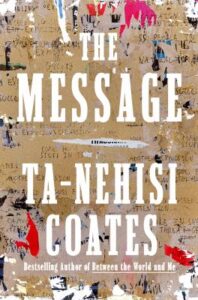 The Black Voice News (BVN) may be new to the Library, but it is not new to the community. Conceived of in 1972 by students attending the University of California at Riverside, it was purchased in 1980 by Hardy and Cheryl Brown, who became its publishers (now emeritus publishers) and formed Brown Publishing Company. For more than 50 years, the weekly publication has “chronicled some of the most important stories impacting the lives of Black Californians, and given “voice” to the community while expanding its scope of civic involvement.” (Source: BVN) Based in Riverside, the newspaper covers Riverside, as well as the Inland Empire. Find it online at BlackVoiceNews.com.
The Black Voice News (BVN) may be new to the Library, but it is not new to the community. Conceived of in 1972 by students attending the University of California at Riverside, it was purchased in 1980 by Hardy and Cheryl Brown, who became its publishers (now emeritus publishers) and formed Brown Publishing Company. For more than 50 years, the weekly publication has “chronicled some of the most important stories impacting the lives of Black Californians, and given “voice” to the community while expanding its scope of civic involvement.” (Source: BVN) Based in Riverside, the newspaper covers Riverside, as well as the Inland Empire. Find it online at BlackVoiceNews.com.
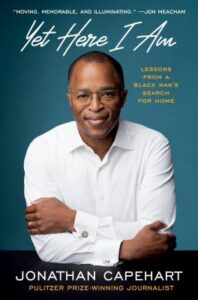 This dedication to giving a voice to community members, in the format of reputable journalism, is vital for a democracy striving to reach the ideal of ensuring equality among all its diverse groups. Many Americans of color, especially Black Americans, have long reported that their stories, their accomplishments, have all too often been left out of the history books. We need to insist that each story matters, that memory matters, and that shared history requires guardians.
This dedication to giving a voice to community members, in the format of reputable journalism, is vital for a democracy striving to reach the ideal of ensuring equality among all its diverse groups. Many Americans of color, especially Black Americans, have long reported that their stories, their accomplishments, have all too often been left out of the history books. We need to insist that each story matters, that memory matters, and that shared history requires guardians.
And so, on to more of our guardians: Listed below are newer books to the Library that share this vision, their authors aiming their points of view through the lens of journalism and publishing.
 The Message by Ta-Nehisi Coates. A correspondent for The Atlantic, the renowned author of Between the World and Me journeys to three resonant sites of conflict to explore how the stories we tell–and the ones we don’t–shape our realities, reminding us that there is need to hear many stories, not just one. Coates suggests that storytelling of an ideological nature–even his own and his own family’s–omits too much, and that what is ultimately needed to arrive at justice is fact-based reporting.
The Message by Ta-Nehisi Coates. A correspondent for The Atlantic, the renowned author of Between the World and Me journeys to three resonant sites of conflict to explore how the stories we tell–and the ones we don’t–shape our realities, reminding us that there is need to hear many stories, not just one. Coates suggests that storytelling of an ideological nature–even his own and his own family’s–omits too much, and that what is ultimately needed to arrive at justice is fact-based reporting.
Yet Here I Am: Lessons from a Black Man’s Search for Home by Jonathan Capehart. Pulitzer Prize winning writer, editor, and TV host, Capehart recounts powerful stories from his life about embracing identity, picking battles, seizing opportunity, and finding his voice.
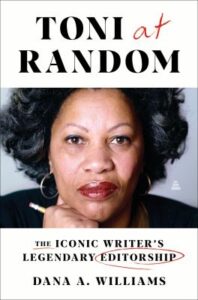 No Human Involved: The Serial Murder of Black Women and Girls and the Deadly Cost of Police Indifference by Cheryl L. Neely. The author, a sociology and criminology professor, sets out to show how Black women are killed at a higher rate than any other group of women, but their victimhood is not covered by the media and their cases do not receive an adequate level of urgency.
No Human Involved: The Serial Murder of Black Women and Girls and the Deadly Cost of Police Indifference by Cheryl L. Neely. The author, a sociology and criminology professor, sets out to show how Black women are killed at a higher rate than any other group of women, but their victimhood is not covered by the media and their cases do not receive an adequate level of urgency.
Toni at Random: The Iconic Writer’s Legendary Editorship by Dana A. Williams. Drawing on extensive research and firsthand accounts, this comprehensive study discusses the legendary novelist Toni Morrison’s largely unknown early career working for Random House, emerging as one of its most important editors who transformed the broader literary landscape and deepened the cultural conversation, shaping Black literature into the mainstream.
Black history, as is the history of any group of people in the United States, is American history—is our history. We invite you to come into the Library and find these and other excellent offerings on display in honor of that shared history.
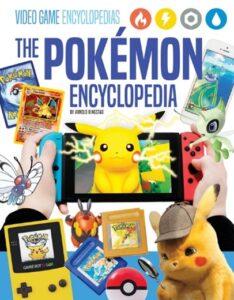 With the new year already full-speed ahead, the Young Readers’ Room has a selection of new, non-fiction books for youngsters to peruse. Please stop by the New Books shelf for the following titles and more.
With the new year already full-speed ahead, the Young Readers’ Room has a selection of new, non-fiction books for youngsters to peruse. Please stop by the New Books shelf for the following titles and more.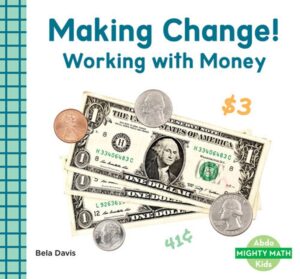 This next book selection will help kids learn how to deal with money to make change and figure out money math without using their fingers! “
This next book selection will help kids learn how to deal with money to make change and figure out money math without using their fingers! “ Speaking of Spring Break, or any time of swimming in the ocean (California can be year-round!), we have a new series of books about sharks. “
Speaking of Spring Break, or any time of swimming in the ocean (California can be year-round!), we have a new series of books about sharks. “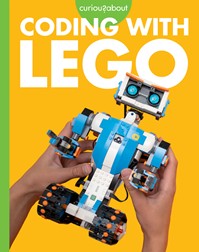 The final book up for our new book collection in January is another in the “Curious About” series. “
The final book up for our new book collection in January is another in the “Curious About” series. “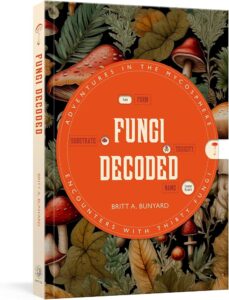 One of the biggest changes we have seen in the Library since the year has begun, is a return to physical media. Physical books, checking out movies and DVDs, and even perusing our extensive archives of older magazines and reference materials. Physical media tends to add a much more whimsical feel to our lives and, in order to ensure the upmost amount of whimsy to your day, here are some new books that focus on one of the most whimsical subjects: Mushrooms!
One of the biggest changes we have seen in the Library since the year has begun, is a return to physical media. Physical books, checking out movies and DVDs, and even perusing our extensive archives of older magazines and reference materials. Physical media tends to add a much more whimsical feel to our lives and, in order to ensure the upmost amount of whimsy to your day, here are some new books that focus on one of the most whimsical subjects: Mushrooms!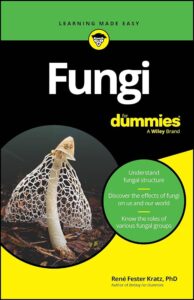 While this next book is technically a part of the for dummies book series, it is a fascinating deep dive into the word of mushrooms:
While this next book is technically a part of the for dummies book series, it is a fascinating deep dive into the word of mushrooms: 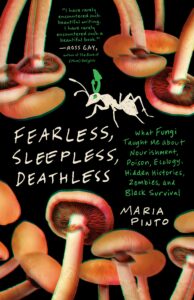 How about the perspective of a forager and their relation to the world at large? Try
How about the perspective of a forager and their relation to the world at large? Try 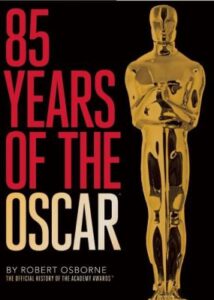 Oversized materials are thought of as conversation pieces. They are perfect to check out and put on one’s coffee table. They also can be used to decorate one’s living room or study. They are highly detailed and have beautiful photographs. Many times, teachers will use them for art or history lessons. Other times they are just fun items to read and look at the pictures.
Oversized materials are thought of as conversation pieces. They are perfect to check out and put on one’s coffee table. They also can be used to decorate one’s living room or study. They are highly detailed and have beautiful photographs. Many times, teachers will use them for art or history lessons. Other times they are just fun items to read and look at the pictures. Seventeen-year-old Jo Kuan is the star of the YA historical fiction novel “
Seventeen-year-old Jo Kuan is the star of the YA historical fiction novel “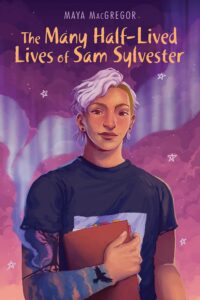 In Maya MacGregor’s YA thriller “
In Maya MacGregor’s YA thriller “